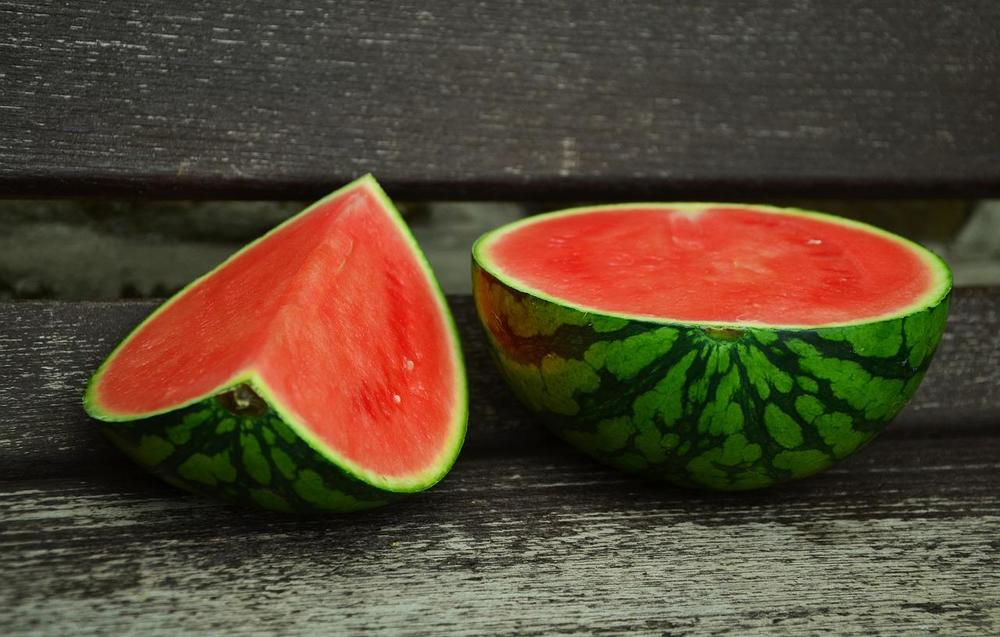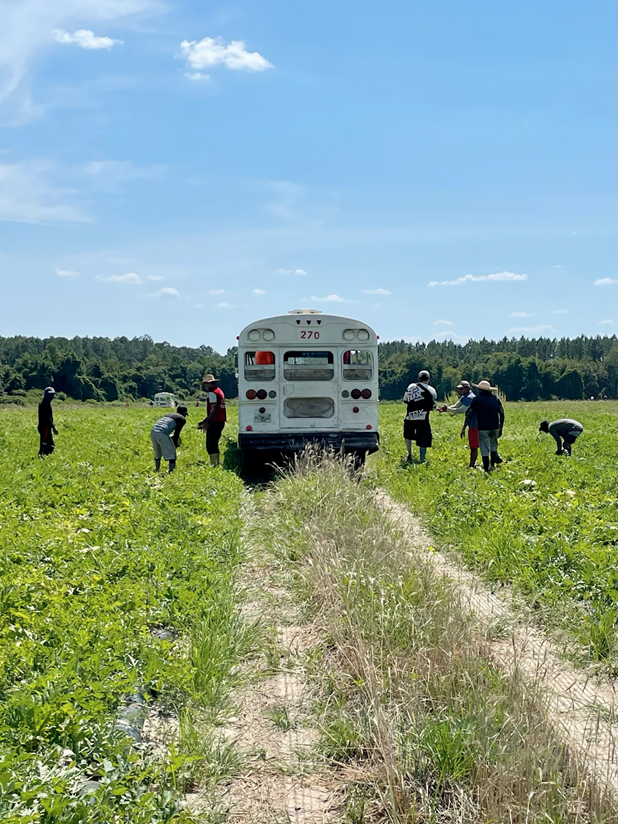
Caption
A ripe, sliced seedless watermelon is pictured. But in summer 2022, Georgia farmers are seeing a less appetizing picture for their watermelon crop.
Credit: Pixabay
The right amount of heat is needed to raise good watermelons. But there’s been too much, too soon in Georgia this summer

A ripe, sliced seedless watermelon is pictured. But in summer 2022, Georgia farmers are seeing a less appetizing picture for their watermelon crop.
The right amount of heat is needed to raise good watermelons. But there’s been too much, too soon in Georgia this summer.
That’s why farmers like Christy Smith in Georgia face major challenges as the planet continues to rapidly warm. Crop yields are low, causing farmers — and agricultural towns — to lose money as well as crops.
Smith is a fourth-generation watermelon farmer in Wray, Ga. Her farm sends produce across the United States and into Canada.

Employees of Smith’s Quality Produce Packing House pick watermelons in Wray, Ga., in July 2022.
Smith said this season has been difficult, facing intense heat and only 3 inches of rain from March until the end of June.
“We actually had watermelon that wasn’t even ripe inside that turned orange on the top,” she said. “The heat was so hot on them, it just cooked them.”
That meant a ruined fruit.
“Even though the quality of the inside of the watermelon is good to eat, it's just — you can't ship it up the road because they'll reject it,” she said.
Losing crops to heat is an expensive loss. Farmers are still required to pay their staff and companies that were hired to distribute the produce, but they will never see any return if a batch was rejected.
Smith decided to cut her picking season short by two weeks, to minimize the possibility of crops burning and being rejected by distributors and buyers.
Dr. Daniel Gilford from Climate Central, a research group that develops ways to communicate climate science, says that this is all the product of climate change.
The Earth is covered by a blanket of carbon dioxide that traps heat. As carbon dioxide production continues, more heat becomes trapped on earth, which significantly increases temperatures on Earth.
Carbon dioxide takes hundreds of years to leave the atmosphere. Gilford said.
“In my lifetime, this heat is not going away,” he said. “We're going to have to adapt to it.”
Gilford stressed that significant changes in climate policy need to be made soon, and those changes start with discussions within communities.
“Climate change needs to be a part of the conversation,” Gilford said. As people talk about it more, it will become part of the collective consciousness and there will be grassroots efforts to make a push towards changing things on a broader scale.”
Farmers have faced a tough growing season, battling extreme heat and severe drought in a critical part of their season. Farmers like Christy Smith are trying to stay positive during these challenging times, but are learning this extreme heat is a new normal.